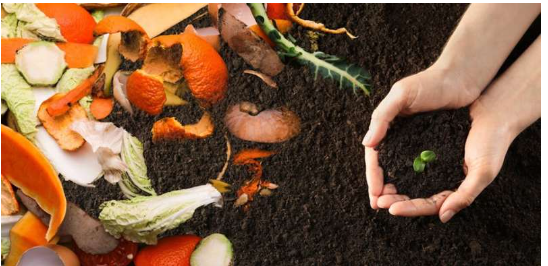Most food and garden waste in Australia comes from homes. Australian households waste 3.1 million tons of food each year. That’s more than five kilograms each household per week.
Over half of all household waste is food organics and garden organics, also known as “FOGO“. These scraps and clippings take up space in landfill and, when they rot, emit dangerous greenhouse gases.
The federal government’s National Waste Policy Action Plan aims to increase the organic waste recycling rate from 47% to 80% by 2030 and halve the amount sent to landfill. This won’t happen on its own—we need investment and action.
Food and garden waste can be captured and turned into compost. Composting is no longer just the domain of the home gardener or eco-warrior. It’s happening at commercial scale, through services such as council collection from homes.
A federal government fund is building new composting facilities and supporting other food and garden organics recycling projects. The South Australian government has invested in council trials of weekly green bin collection and fortnightly rubbish collection.
But more must be done. Recycling food waste into high-quality compost is a win-win solution, for people and the planet. Here, we explain why.
Compost is a winner for the climate
When food rots in landfill, in the absence of oxygen, the process releases a potent greenhouse gas called methane.
Composting is different because the microbes can breathe. In the presence of oxygen, they transform waste into valuable organic matter without producing methane. They recycle organic carbon and nutrients into compost, which can be used to improve soil health and productivity.




